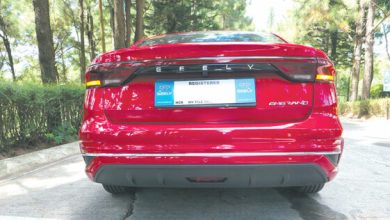SEC wants to lower ‘friction’ costs and underwriters’ fees

THE SECURITIES and Exchange Commission (SEC) is seeking to reduce “friction” costs such as underwriters’ fees to help boost the country’s capital market.
“We’re looking at revisiting all that to try and knock down some of these friction costs. One thing I’m looking at is underwriters fees. If you’re familiar with the underwriters, these are the investment managers who focus and handle the issuances of the initial public offerings (IPOs),” SEC Commissioner Kelvin Lester K. Lee said during a media roundtable in Makati City last week.
“When I say frictional costs, the expenses for capital market issuances are generally high here in the Philippines because some are set by law and some are set by regulations,” he added.
According to Mr. Lee, the move to reduce friction costs came after the SEC had recently been informed of high underwriters’ fees.
“We have not yet made the decision in the SEC on how to deal with it. But certainly, this bears looking at already at this stage. It (friction cost) was flagged to us. We were informed of a certain set of friction costs,” Mr. Lee said.
Meanwhile, Mr. Lee said the SEC is “generally supportive” of House Bill (HB) No. 8958 or the proposed Capital Markets Efficiency Promotion Act as long as it is focused on supporting the capital market and lowering friction costs.
“We are generally for it — anything to lower friction costs, at this stage. But we still need to see the specifics of the bill. We haven’t seen the full bill yet,” Mr. Lee said.
“The proposed amendments are in line with the efforts and initiatives of the SEC to boost the capital markets and support the growth of the capital markets and increase market liquidity,” he added.
HB 8958, filed by Albay Rep. Jose Ma. Clemente S. Salceda on Aug. 23, seeks to lower the taxes on stock transactions to 0.1% from 0.6%, impose a 0.1% debt transaction rate except for government securities, and lower the dividends tax to non-resident foreigners to 10% from 25% to harmonize the cash and property dividends rate.
The bill, which seeks to amend the Tax Code, is pending with the House Committee on Ways and Means.
“[This tax reform] can be simpler and faster than the Passive Income and Financial Intermediaries Taxation Act or PIFITA, which might be too comprehensive and broad-ranging that time might not be on our side,” Mr. Salceda said in a previous statement.
However, Mr. Lee said that one challenge to the proposal is the potential effect on the government’s tax collection and revenue generation efforts.
“I understand that the challenge is anytime you make changes to the taxes, it might affect the finances of the government because anytime you reduce taxes, it will affect the Treasury. I’ll defer to the Treasury on their position on that,” Mr. Lee said.
“But from our perspective, if the focus is on boosting the capital market, then we are generally game for it,” he added. — Revin Mikhael D. Ochave




